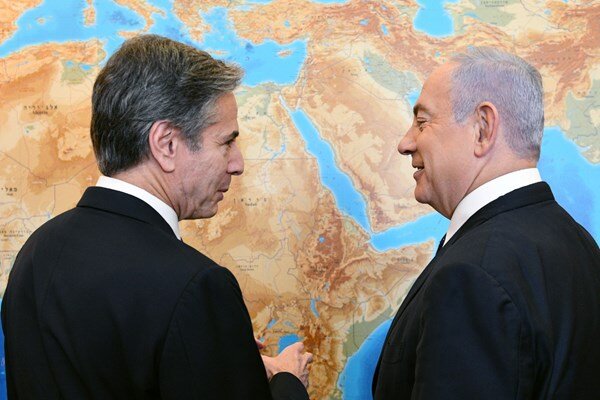Hassan Hanizadeh, in an interview with the website of the Strategic Council on Foreign Relations, said that the common scenario of the US, Europe, and the Zionist regime is that Hamas and Islamic Jihad should be completely disarmed and the tunnels built should be destroyed. The city of Gaza became a city without weapons. It is administered under the joint supervision of the United Nations and the Zionist regime, adding: This regime wants to eliminate Hamas and its leaders and annihilate them physically completely. The bombings that have been carried out were also aimed at operationalizing such plans.
While pointing out the opposition of the Zionist regime to the administration of Gaza by the Palestinian Authority and requesting for the establishment of a mechanism different from it, he continued: Netanyahu announced that the objective of the regime is to turn Gaza into a civilian area under security control. The neighboring countries of occupied Palestine, such as Jordan and Egypt, are extremely worried that the residents of Gaza will be transferred to the Wadi Araba and Ghur Al-Ordon (the Jordan Valley), and another part of this population will also go to the Sinai desert in Egypt. This concern has brought reactions from Egypt and Jordan. An alternative plan may be a region in Syria.
An expert on West Asia affairs says that this population may be transferred to those three Syrian provinces due to the US’ control over areas such as Deir ez-Zor, Hasakeh, and Qamishli. However, it faces opposition from the Resistant Front and the Syrian government, and the people of Gaza noted that the US has given advanced weapons to the Israeli regime that are not yet available to NATO members. For the first time, such weapons are being used against the people of Gaza and underground tunnels. The White House is trying to ultimately lead the situation in the direction that Gaza will be bombarded completely, and the Zionist regime will gain control over all the northern and southern regions of Gaza.
Hanizadeh, while emphasizing that resistance continues and despite the repeated bombings and the large number of martyrs and wounded, the field superiority is in the hands of Hamas and Islamic Jihad, added: The US and the West oppose any draft supervising over the end of the Gaza war and the ceasefire and will veto it in the Security Council. With the continuation of such conditions, the violence in the region will intensify, and it seems that the Israeli regime is preparing itself for a longer war than in the past.
Saying that the infrastructures of Hamas in the north of Gaza were destroyed, but they still maintained their operational and military capabilities, he pointed to the published news about the Israeli regime’s attempt to create a buffer zone of at least two kilometers along the border with Gaza and remarked: The Zionist regime has so far failed to achieve its targets in Gaza. In this war, Hamas follows the logic of unconventional wars, and the Israeli regime has not gained any victory in unconventional wars so far.
The analyst of West Asia affairs, emphasizing that this war has become a war of dignity for the Zionist regime, which has committed crimes, mass killings, and attacks on hospitals, added: Despite the death of thousands of Gaza residents, a large part of whom are women and children, the severe economic blockade that has led to hunger, thirst, deprivation of health and medical services for hundreds of thousands of people and targeting hospitals, the passage of time is not in favor of the Zionist regime. With the prolongation of the war and the unprecedented amount of Palestinian casualties, public opinion has formed against this regime, and this situation puts pressure on the supporters of the regime.
Hanizadeh pointed to the increase in the casualties of the Zionist regime if the war is prolonged and said: In the current situation, the Zionist regime is trying to cut off the geographical continuity of the north and south of the Gaza Strip so that in this way while intensifying the pressure on Hamas, gain an achievement for itself. However, due to the underground nature of the Resistance in Gaza, such a measure will not be implemented easily. It seems that, in the end, the Israeli regime will go towards creating deterrence for itself by destroying as much infrastructure as possible in Gaza, increasing the number of casualties to the level of genocide, and weakening the military power of Hamas, and after that, accept the ceasefire.
Recalling that such conditions will definitely not mean the victory of the Zionist regime, he referred to the role and performance of some Islamic and Arab governments in taking a stand to support the people of Gaza and continued: The US is seeking to create fundamental changes in the region; as it has forced the ISIS to take action in Syria. The Israeli regime and its allies are trying to change the security equations of this region; as in the past days, some security figures and former intelligence officials of the Zionist regime have spoken about the possibility of future control of the Gaza Strip by an Arab coalition that has peaceful relations with the Israeli regime. It seems that due to the inaction of Arab countries, they are moving towards the realization of such an idea that will not be accepted by the Axis of Resistance and will not lead to the solution of the crisis.










0 Comments